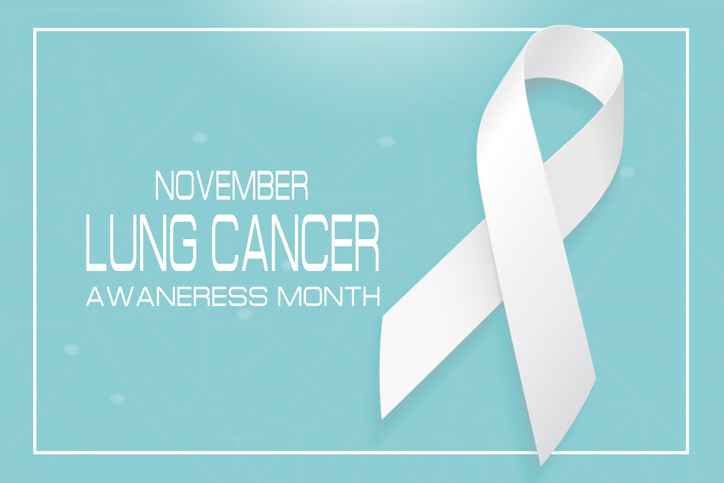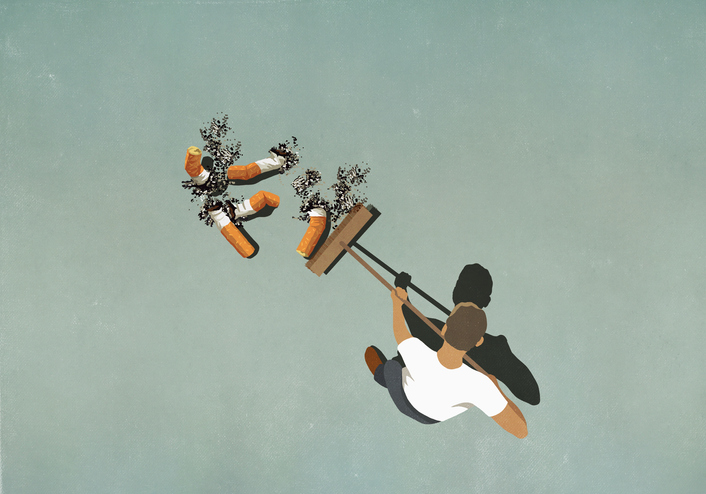To the Boomers Who Smoked in Their Younger Years, You Need to Know This About Lung Cancer Screening

By Joy Stephenson-Laws, JD, Founder
According to recent data from the Centers for Disease Control and Prevention (CDC), more people in the United States die from lung cancer compared to any other type of cancer. This is accurate for both men and women.
If you are a former smoker, I’m proud of you. For us non-smokers, it is easy to forget how addictive and powerful nicotine is.

“The nicotine in any tobacco product readily absorbs into the blood when a person uses it. Upon entering the blood, nicotine immediately stimulates the adrenal glands to release the hormone epinephrine (adrenaline). Epinephrine stimulates the central nervous system and increases blood pressure, breathing, and heart rate,” according to the National Institute on Drug Abuse.
“As with drugs such as cocaine and heroin, nicotine activates the brain’s reward circuits and also increases levels of the chemical messenger dopamine, which reinforces rewarding behaviors. Studies suggest that other chemicals in tobacco smoke, such as acetaldehyde, may enhance nicotine’s effects on the brain.”
(pH must-read - Here’s How You Can Be Proactive About Nicotine Withdrawals)
This may be one of the reasons why it takes some people decades to quit smoking even though it is widely known that smoking may cause lung cancer and even other types of cancer, including mouth, esophagus, throat, bladder, liver, kidney and more.
You are not alone.Dianne McAnelly, who looks to be around Boomer age (between 59 to 77 years of age), started smoking in 1962. She smoked on average two packs a day for 60 years before finally quitting with the help of a smoking cessation program. Although McAnelly’s story is definitely on the extreme side, her story is very relatable to Boomers. Many Boomers started smoking in their early teens, because the potential health consequences of smoking cigarettes were not instilled.
(pH must-read - It’s Time to Increase Your Lung Cancer IQ)
You may be a Boomer who no longer smokes (and hasn’t for years), but you still may be eligible for lung cancer screening. Recently, the American Cancer Society (ACS) updated their screening guideline for lung cancer.

“The new guideline recommends yearly screening for lung cancer for people aged 50 to 80 years old who smoke or formerly smoked and have a 20-year or greater pack-year history,” according to a recent Medical Xpress report discussing the ACS’s new guidelines.
"Recent studies have shown extending the screening age for persons who smoke and formerly smoked, eliminating the 'years since quitting' requirement and lowering the pack per year recommendation could make a real difference in saving lives," said Dr. Robert Smith, lead author of the lung cancer screening guideline report, who was referenced in the Medical Xpress report.
The previous guideline had a more restrictive age range (55 to 74 years), however, widening that range (50 to 80 years) can potentially save a lot of lives through early detection. Also reducing the pack-year history to 20-year or greater from 30-year or greater could save lots of lives. As mentioned, eliminating the years since quitting is also key.
This is important for a number of reasons.I hope that young people who may read this will never pick up a cigarette or vape if they have not yet. If you are young and do smoke, I hope this motivates you to quit right now. And for those who were smokers in their past lives, it does not mean that the effects of smoking will not catch up with you. The good news is that you have the opportunity to be proactive by talking to your doctor about lung cancer screening. If you think you may be eligible, make it your goal to look into this in early 2024 or sooner!
If you are someone who smokes and is having a hard time quitting, I highly recommend reading the previous pH blog - Quit Smoking Through Nutrition and Exercise.
Please do not underestimate what is within your control.
The National Institutes of Health (NIH) says 30-40% of all cancers can be prevented by lifestyle and dietary measures alone. For cancer prevention in general, it is important to get a daily adequate intake of vitamins, minerals and antioxidants, which help reduce the damage from oxidative stress.
We must also try to avoid nutritional deficiencies to be our healthiest selves and help prevent cancer. One way to determine if you have a nutritional deficiency or imbalance is to take a comprehensive nutrient test. If the test determines that you are not nutritionally balanced, a competent healthcare professional can work with you on making the necessary dietary changes and recommend quality supplements if necessary.
Enjoy your healthy life!
Disclaimer: This article is not intended to provide medical advice. Please consult with your doctor or another competent healthcare practitioner to get specific medical advice for your situation.
The pH professional health care team includes recognized experts from a variety of health care and related disciplines, including physicians, attorneys, nutritionists, nurses, and certified fitness instructors. This team also includes the members of the pH Medical Advisory Board, which constantly monitors all pH programs, products, and services. To learn more about the pH Medical Advisory Board, click here.







